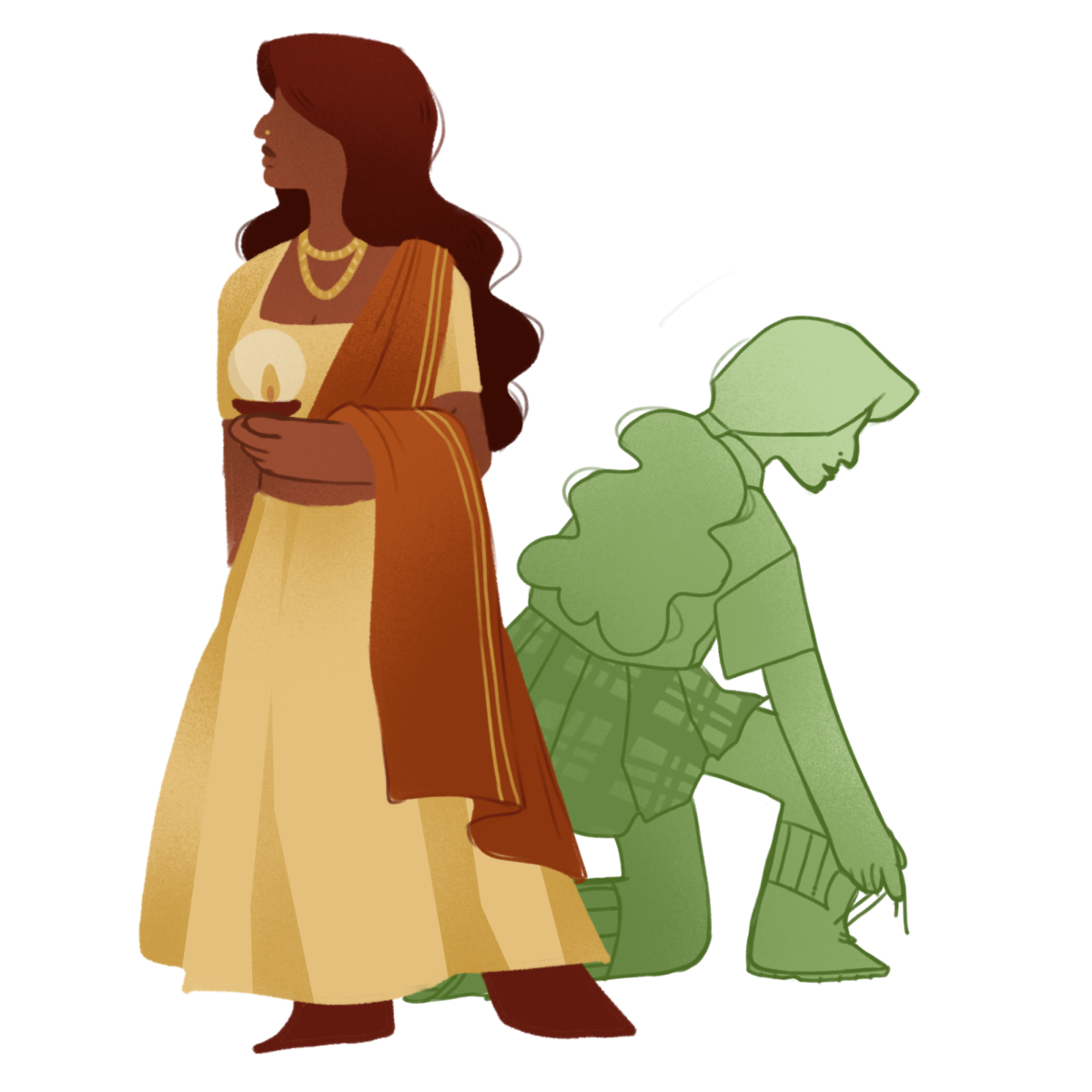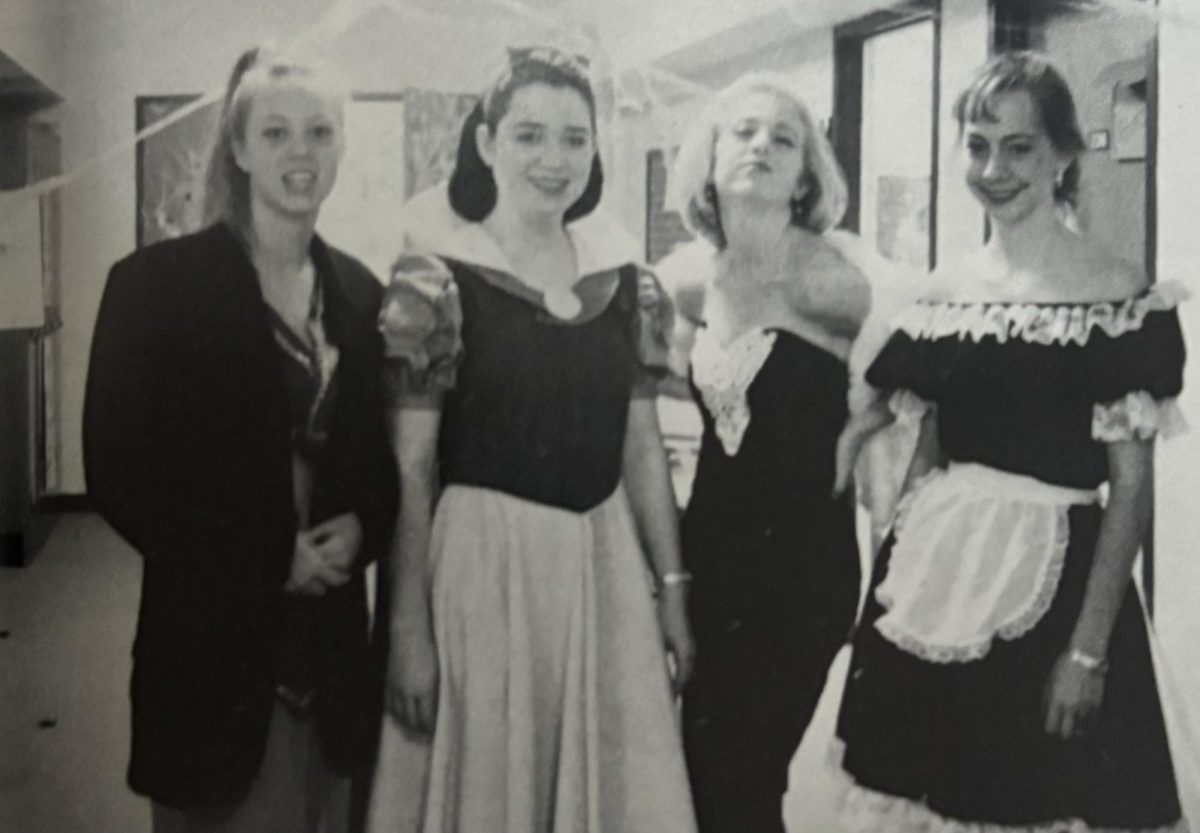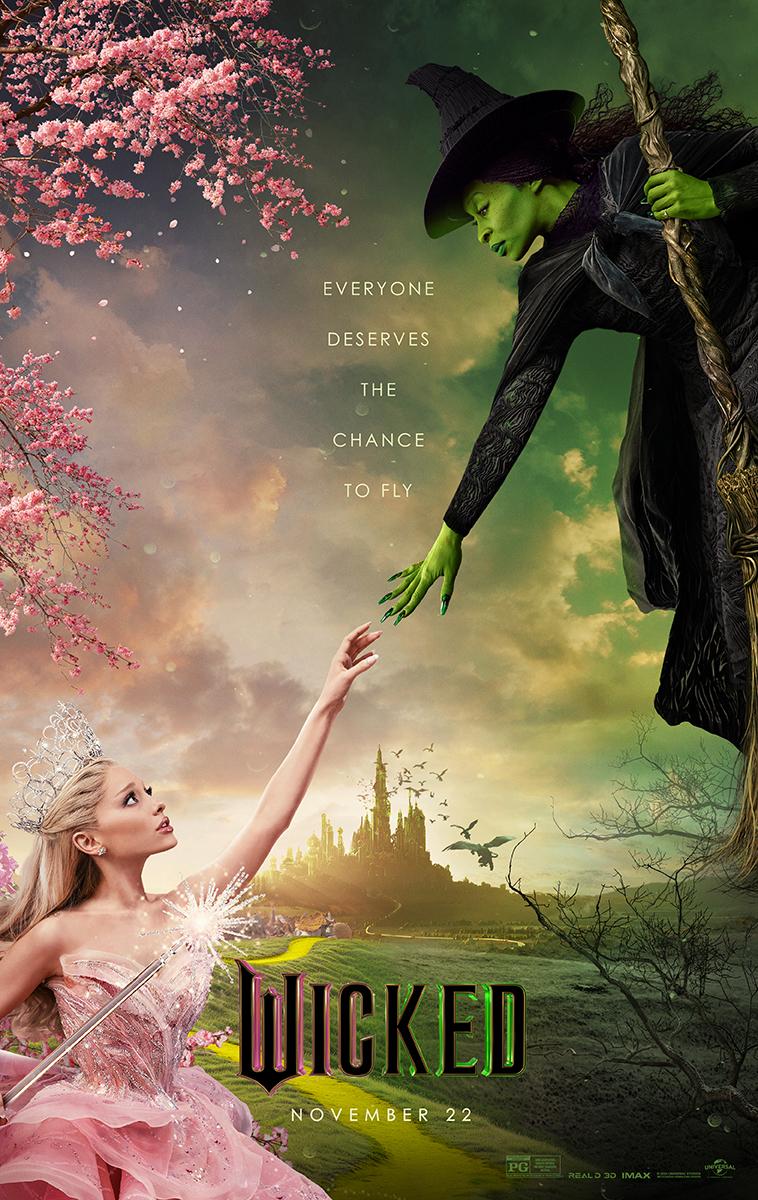One could assume that sexuality—mind you, heterosexuality—does not come up all that often in an average day at Hockaday. After all, isn’t that the point of an all-girls school? But think about it for a second. Think of your pre-school conversations about your date on Friday night, or the football player who texted you all Saturday afternoon, or, at the very least, the super cute guy who starred in the movie that you and all your friends saw on Sunday.
Now, on to advisory. It seems like every third advisor’s room has been adorned with a “man wall” plastered with glossy magazine photos of the choicest actors and male models. And around Homecoming and Winter Formal, many advisories become absolutely boy-crazy.
It’s barely 10 a.m., and already the day is brimming with heterosexuality. And that’s without even getting into classes, in which discussions of romantic plotlines and historical affairs come up pretty frequently. Recently, for example, a visiting author asked my English class to do a writing exercise about our theoretical future husbands.
But what if someone wanted to write about her future wife? If she dared to share it with the class, we’d like to think that everyone would accept her or even applaud her bravery, but let’s be honest. Is our community really as accepting as we think?
When I started dating a girl sophomore year, I never dreamed of the ways in which I would feel limited. And yet, there was now a long list of conversations that I could not have, activities that I could not participate in without being outed. No hallway conversations about our weekend dinner dates or cutesy Facebook photographs of us at the park; no flowers and balloons outside her locker for Valentines’ Day or holding hands in the hallway. It’s not that I didn’t want those things. I did, desperately. I wanted to be normal, cute, Facebook official like every other couple I knew.
But I couldn’t bring myself to do it, to post that status or make that casual declaration in class or just tell someone. I’m not afraid of very many things—enormous heights, centipedes and clowns are about all that comes to mind—but I was afraid to come out. And, quite frankly, I didn’t entirely know why.
I’d never had any terrible, homophobic confrontations that made me run screaming into the closet. No one, student or teacher, had ever told me that it was wrong to be gay or that I wouldn’t be accepted if I came out. But there were…hints, here and there: a nasty rumor that circulated sophomore year, a lesbian classmate who left Hockaday freshman year because she didn’t fit in.
Julianna, a senior who came out in her junior year, had a similar experience. She’s never faced any direct, confrontational homophobia, but she has overheard some disturbing comments. In eighth or ninth grade, she recalled, some friends were discussing Kurt, a gay character on the popular TV show Glee.
“This girl was like, I would love to have a gay son, but not a gay daughter, because that’s disgusting,” Julianna said. “It was very bad, especially because I was closeted at the time. And my friends were all mindlessly agreeing, and I was perturbed by that.”
There, then, was the source of my fear. Not direct, negative confrontation, but other, subtler clues that point to a less than LGBT-friendly culture. It’s mostly offhand, much like the Glee comment or the ubiquitous use of “gay” in a negative way. The majority of the time, there’s no harm meant, but thoughtless remarks can have profound effects on gay or closeted students, can scare people like me back into the closet.
If you want proof, just look at the lack of openly lesbian or bisexual students at Hockaday. Ask a girl like me or Julianna, members of the so-called “lesbian clique,” how many LGBT peers she knows, and the fingers tick upwards of ten. But if you ask how many girls are out of the closet to everyone–friends, family, classmates, and teachers alike–the response is a long silence. People only feel safe telling their closest friends or fellow lesbians. Aside from Julianna, I can’t think of a single openly gay girl.
The problem is that it’s a self-repeating cycle. People don’t feel safe enough to come out because no one else is out, so no one ever comes out. The fear of becoming a target for gossip and ridicule tends to keep people in the closet, but that in of itself perpetuates the problem. Because when no one comes out, gay students continue to be a rarity, something to be pointed at and whispered about instead of shrugged off as the norm. The only way to acclimate often sheltered Hockaday students to lesbians is to make them realize that many of their friends and classmates are gay, but…well, no one comes out.
How do we get rid of this subtle, insidious climate of homophobia? One way is just to talk about it more. Julianna suggested discussing gay sex in Middle School sex-ed to help make the concept a normal fact of life, just like heterosexual sex. That integration should also extend into everyday classes; it’s disheartening for a closeted student to hear about nothing but hypothetical boyfriends and husbands in class discussions.
In essence, I think the most important thing is to make homosexuality normal. It should be okay for gay and bisexual girls to discuss our girl crushes openly, to tell advisory tales of our dates, to write English papers about our experiences of self-discovery. Hockaday as a community can get rid of that catch-22, can make it safe for gay classmates to express themselves, can fully become the safe and accepting place that it imagines itself to be.
At the moment, we’re not quite there, but with a little work and a bit more self-consciousness, we definitely could be.
-Lizzie




